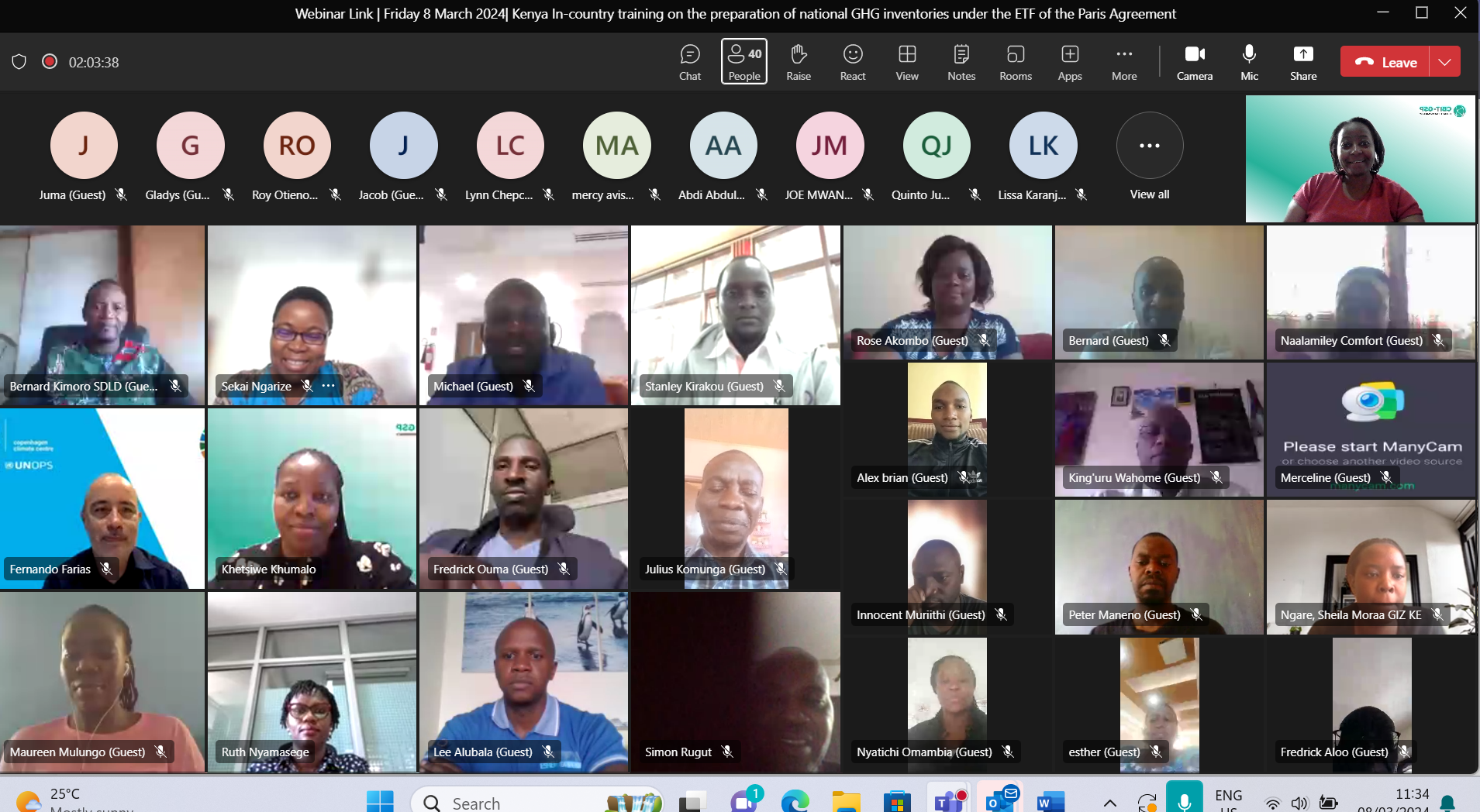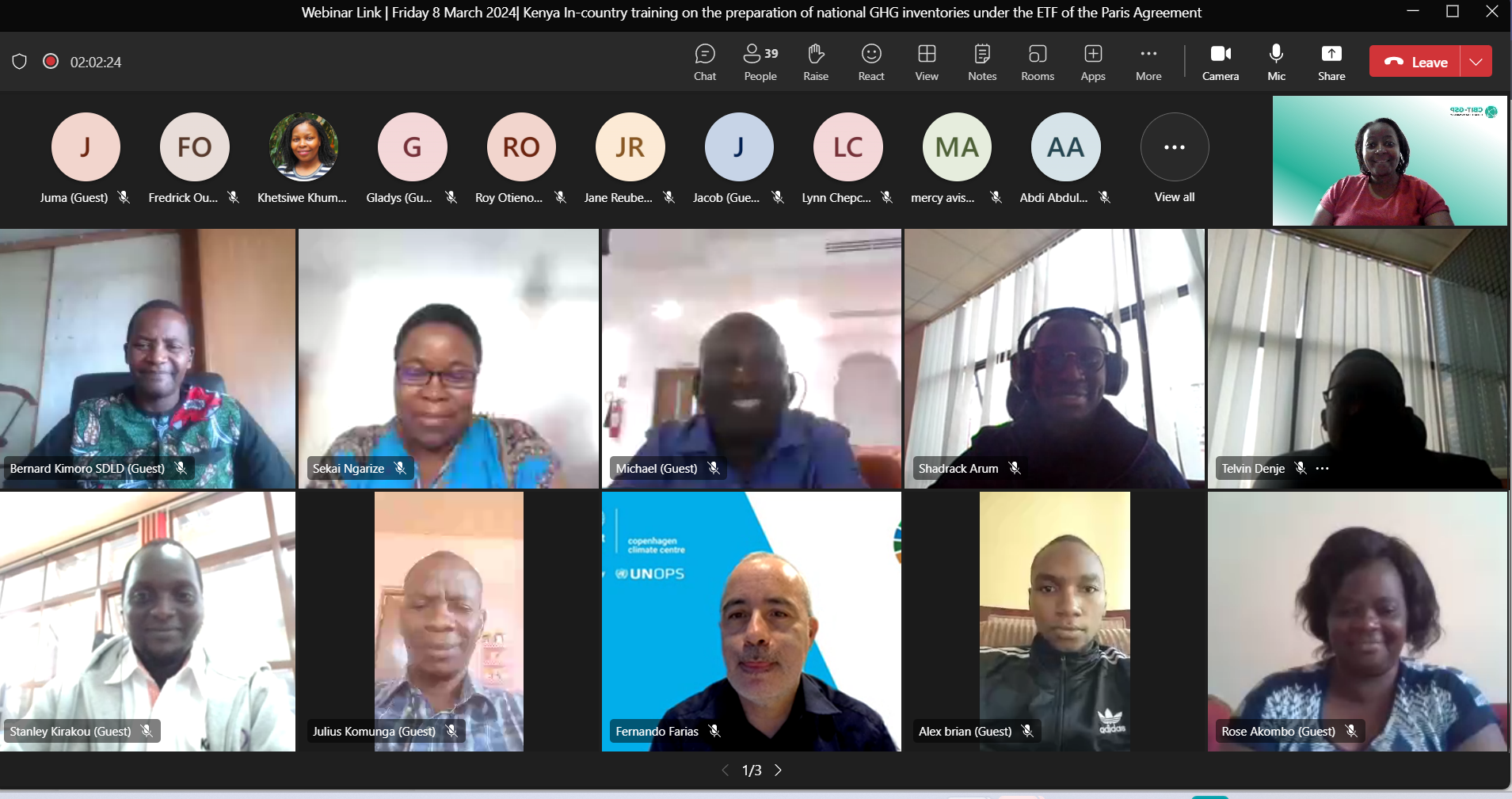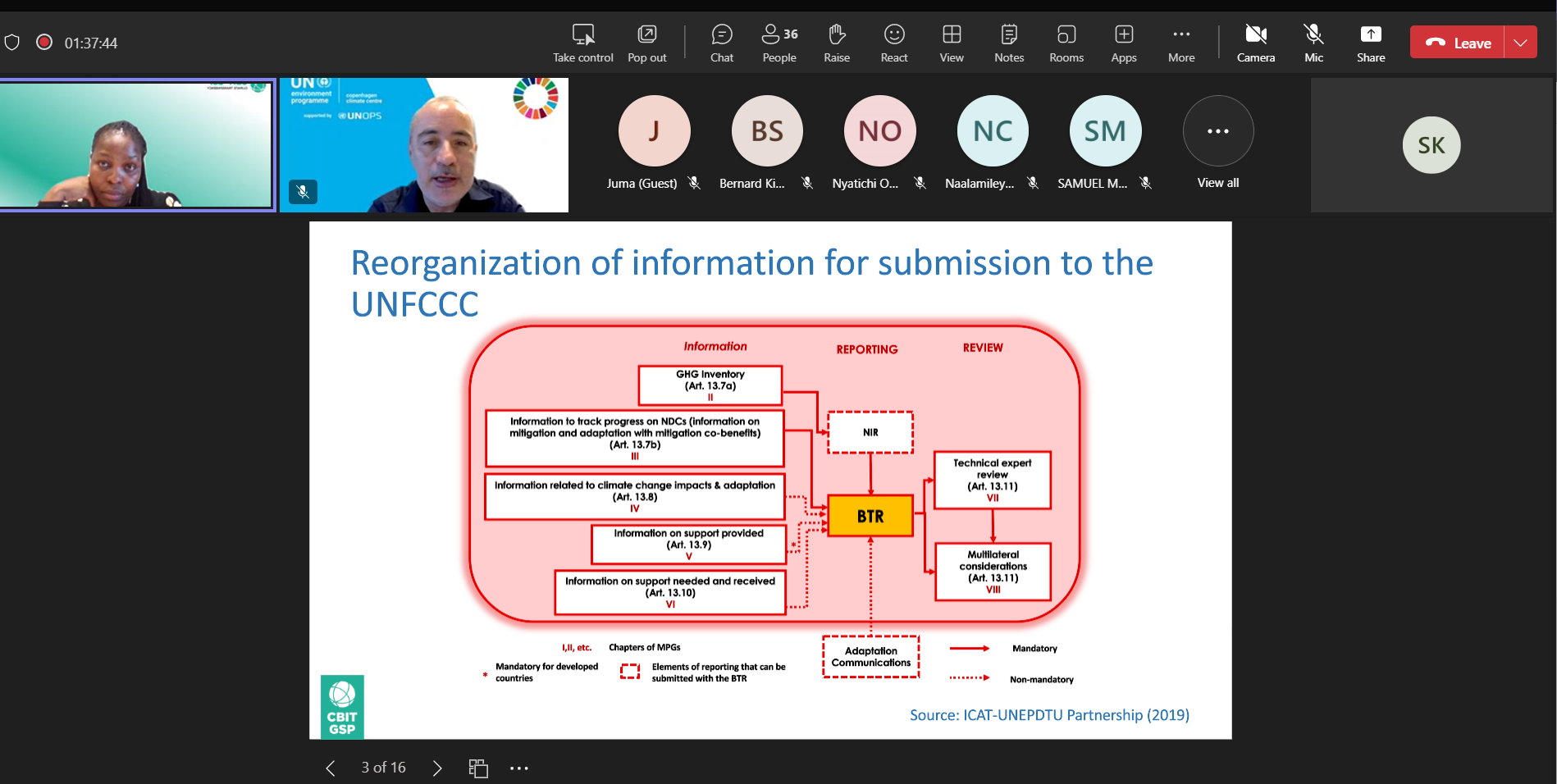Background
The MPGs, formulated to implement transparency in reporting under the Paris Agreement, defined specific new requirements for reporting the results of national GHG inventories. As such, information on national GHG inventory results should be included in a specific chapter of the BTR (Chapter I) and supporting information should be included in the annexes. In addition, all Parties must provide a national inventory report (NIR), which consists of a national inventory document (NID) and the common reporting tables (CRT), to the UNFCCC as part of each country´s BTR submission process.
Although many countries now count on the skills to prepare national GHG inventories, cultivated as part of the preparation of their previous National Communications and BUR, Kenya has not submitted both reports in the past years. Kenya has already started updating the current inventory that was used to prepare the Updated NDC as part of preparing their BTR. However, the task of reporting on the associated processes that lead to the development of inventories and on the data and results is also a key aspect of ensuring that countries comply with the transparency conditions established in Article 13 and can become a challenge for the countries.
The objective of the CBIT-GSP is to provide streamlined support and capacity-building at the national, regional, and global levels to assist developing countries in responding to the reporting provisions under the UNFCCC and the Paris Agreement’s Enhanced Transparency Framework and ultimately increase ambition for climate action. The CBIT-GSP is planning to achieve this through multiple support modalities, including the establishment and work of 10 Regional Networks across the globe to foster south-south collaboration, knowledge-sharing, and learning among countries. The Regional Networks for Anglophone Africa are invited to participate in a joint training exercise on reporting the national GHG inventory under the MPGs, which was assessed as one of the priorities of capacity building for transparency in the regional networks.
About Kenya
The Government of Kenya enacted the Climate Change Act in 2016, and the Act provides a regulatory framework for enhanced response to climate change mechanisms and measures to achieve low-carbon development. The Act establishes a governance structure for climate change management in the country, with the National Climate Change Council (NCCC) being responsible for oversight and coordination. The NCCC is chaired by His Excellency, the President of the Republic of Kenya. The lead government agency responsible for coordinating climate change plans and actions and related measurement, monitoring, and reporting is the Climate Change Directorate under the State Department for Environment and Climate Change Ministry of Environment, Climate Change and Forestry.
Since the adoption of the UNFCCC in 1992 and its ratification in 1994, Kenya has been trying to fulfill its reporting obligations to the UNFCCC, but there have been some challenges. Kenya prepared its First National Communication (FNC) to the Conference of the Parties in 2002 and submitted its Second National Communication (SNC) in 2015. Kenya submitted the first NDC in 2015, adopted the Paris Agreement in 2015, developed the National Adaption Plan for 2015-2030, developed the Climate Change Act in 2016, and developed the National Climate Change Action Plan in 2018. Kenya’s ambitious plan in their updated NDC estimates that USD 62 billion is required to implement Kenya’s NDC (mitigation and adaptation actions) in 2020-2030. The resource requirement for adaptation actions alone is up to 2030, which is USD 43.9 billion.
Kenya’s reporting challenges have hindered timely reporting on the National Communications (NCs) and Biennial Update Report (BUR) in the past years. This year (2024), Kenya is set to start the process of reporting by submitting both the NC and the first Biennial Transparency Report BTR) by December 2024. Considering the short time period, Kenya is required to fast-track the process by building the capacity of the technical staff to support reporting at different levels, including the preparation of national GHG inventories under the ETF of the Paris Agreement.
To this end, Kenya requested the CBIT-GSP to provide support and capacity-building of Kenya’s technical staff in responding to the reporting provisions under the UNFCCC and the Paris Agreement’s Enhanced Transparency Framework and ultimately increase ambition for climate action. Specifically, Kenya’s technical staff will be trained on the key elements of developing the national GHG inventories under the ETF of the Paris Agreement.
Objective
The purpose of the GHG Inventory Training, following the IPCC 2006 Guidelines for the Waste, Energy Sector, and Agriculture, Forestry, and Other Land Use (AFOLU) sector, is to enhance the capacity of technical experts in Kenya in the compilation, analysis, and reporting of greenhouse gas (GHG) inventories. This hands-on training, incorporating the IPCC software, is designed to equip the participants with the necessary skills to improve their contributions to the national reporting under the Enhanced Transparency Framework (ETF) of the Paris Agreement. The training aims to ensure that Kenya's GHG inventories are accurate, comprehensive, and conform to UNFCCC modalities procedures and guidelines for reporting under the ETF, thus supporting informed policy-making and contributing to global efforts in combating climate change. The specific objectives are;
- To strengthen the capacity of Kenya's technical experts in preparing and reporting GHG inventories under the ETF.
- To deepen the technical experts’ understanding of the 2006 IPCC Guidelines for GHG inventories, focusing on methodologies, data collection, and reporting requirements for the Waste, Energy, and AFOLU sectors.
- To provide participants with practical skills in using the IPCC software for GHG inventory compilation and analysis. This includes training on data input, manipulation, and interpretation of outputs, enabling participants to estimate GHG emissions and removals accurately.
Audience
This activity is intended for technical officers who work as coordinators of the national GHG inventory and sectorial(s) inventory data providers in Kenya. This includes government staff at the national and sectoral levels and staff from other institutions that are part of Kenya’s institutional arrangements for reporting inventories under the UNFCCC and the Paris Agreement.
The Approach
The training will be conducted using a two-phase approach.
- The first phase will be two introductory webinars that will mainly sets the stage for the training and will cover the foundational, procedural and governance processes of the national greenhouse gas inventories. The first webinar will focus on the foundational elements and rationale of GHG inventories and the new requirements for reporting national GHG inventories under the Paris Agreement (MPGs) and associated flexibility provisions whilst the second webinar will take participants through the governance and procedural processes necessary for sustainable GHG inventory process under the ETF.
- The second phase will be an in-country hands on training in Kenya on the 2006 IPCC guidelines for national greenhouse gas inventories for Energy, Waste and AFOLU, including the IPCC inventory software. It is envisaged that through this training participants will acquire the necessary knowledge and insights for reporting of the national inventory under the ETF.


